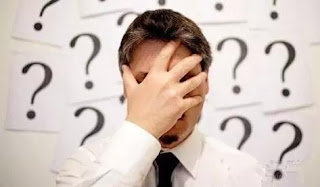Abnormal Conditions of Bubbles in Urine
There are times when bubbles in urine are indicative of medical disorders such as kidney disease or urinary tract infections. Here are some conditions that can cause frothy urine.
Proteinuria
Proteinuria, or protein in the urine, can result in bubbles in urine that gives off a foamy appearance.Infrequent bubbles in urine can occur after ingesting large amounts of protein found in protein drinks, muscle protein gaining supplements, or a large meal of fish or other protein. When a normal amount of protein is consumed in excess the healthy body is able to gets rid of the extra by eliminating it through urine. But when protein is consumed in excess amounts, the kidneys can have a more difficult time getting rid of the excess waste.
However, frequent bubbles in urine could be a more serious condition where the kidneys fail to function properly or a medical condition interferes with the body's ability to metabolize protein.
Normally, when blood passes through healthy kidneys all waste products are removed, leaving only the materials the body needs. However, in individuals with kidney disease or damaged kidneys where the glomeruli, the part of the kidney that normally filters urine, are damaged,protein from the blood can enter in to the urine. The underlying cause of bubbles in the urine related to proteinuria must be diagnosed before the symptom can be treated. If the cause is related to excess protein intake then reducing the amount of protein in the diet will reduce or eliminate bubbles in the urine.
Urinary Tract Infections
Urinary tract infections can also cause urine to bubble. In this circumstance, the bubbles result from microorganisms entering into a sterile urinary tract that releases a gas, which results in bubbles. The bubbles found during urination are often accompanied by pain or a burning sensation. This condition needs to be assessed by a physician who can order a urinalysis to determine whether an infection is present. If a diagnosis of a urinary tract infection is made then the bubbles in urine should disappear after the infection is treated with a round of antibiotics.
If you have been diagnosed with kidney disease, we're here to help. Email us:doctorbruceonline@gmail.com (Monday through Sunday) to make an appointment.
If you have been diagnosed with kidney disease, we're here to help. Email us:doctorbruceonline@gmail.com (Monday through Sunday) to make an appointment.
Vesicocolic Fistula
A fistula is a connection between two organs or blood vessels that does not normally exist. A vesicocolic fistula can form between the bladder and colon and is more commonly found in men than in women by a 3:1 ratio.
When bubbles form in urine due to a vesicocolic fistula it is called pneumaturia. In this case bubbles are introduced into urine when the base of the bladder becomes inflamed or swollen and the surrounding fluid builds up under the skin. The bubbles contained in the fluid are then released in the urine. In this case you should consult your physician to uncover the exact cause of the bubbles.
Foamy Urine
Some people fail to differentiate between bubbles in urine and foamy urine. Frothy or foamy urine is often just a result of forceful urination that comes from ignoring the need to urinate. The foamy appearance of urine in the toilet bowl is a result of excess air getting trapped in the urine. However, if the urine is consistently foamy there may be protein in the urine, which can be indicative of kidney disease. If you consistently have foamy urine it is important that you consult your physician to rule out potential kidney disease.
Conclusion
If you infrequently notice bubbles in your urine then it is problem not something you need to be overly concerned about. However, if your urine frequently bubbles or has a frequent foamy consistency you may need to contact your physician especially if these symptoms are combined with additional symptoms of kidney disease like swelling of the hands, abdomen, and feet.




评论
发表评论